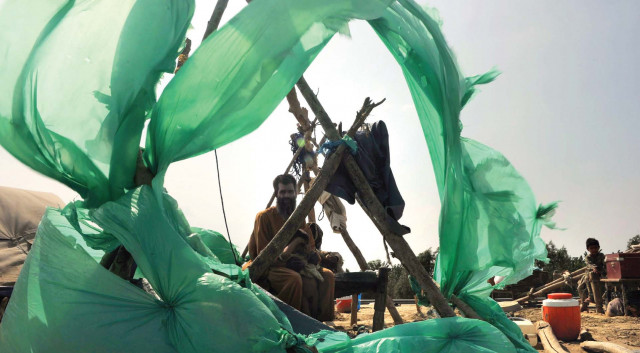16.8m people affected by floods: UN
Pakistan Initial Floods Emergency Response Plan envisages activities costing $459.7m for the initial relief period.

Saleem Rehmat from the International Organisation for Migration (IOM) said: “The projects in the pipeline are growing everyday and so far, 110,000 tents have been provided to facilitate people.” World Food Programme official Marcus Prior said that aid distributed so far has facilitated 1.6 million people. Prior said that three more MI-171 WFP helicopters have reached Islamabad but 40 additional helicopters are required for reaching far-flung areas.
Unicef’s Sami Malik, speaking for the Water and Sanitation Hygiene (WASH) cluster, said: “Out of the 16.8 million people, eight million are children.” The main concern is water-borne diseases as there have been 125,000 reported cases of diarrhoea, over 157,000 skin infection cases and more than 122,000 cases of respiratory tract infections. Malaria and dengue fever are also a matter of concern. “Approximately 1.8 million people are facilitated with clean water, latrines, preventive vaccinations and sachets to purify water,” Malik added.
Paul Garwood of WHO said that at least 77 health centres are being set up in the most affected areas of the country, emphasising on the need for lady health workers.
Truls Breleke, an official of the Food and Agriculture Organisation (FAO), said: “At least 2,000 large animals have been lost in Sindh and Khyber-Pakhtunkhwa alone, and the number is likely to increase.”
Currently, FAO, in collaboration with the government and local and international NGOs, is conducting an assessment in Sindh and Punjab to get an exact estimate of livestock loss. “Seeds have (also) been affected (in large numbers) which is alarming since the Rabi season is here”, Breleke added.
Published in The Express Tribune, August 24th, 2010.



















COMMENTS
Comments are moderated and generally will be posted if they are on-topic and not abusive.
For more information, please see our Comments FAQ